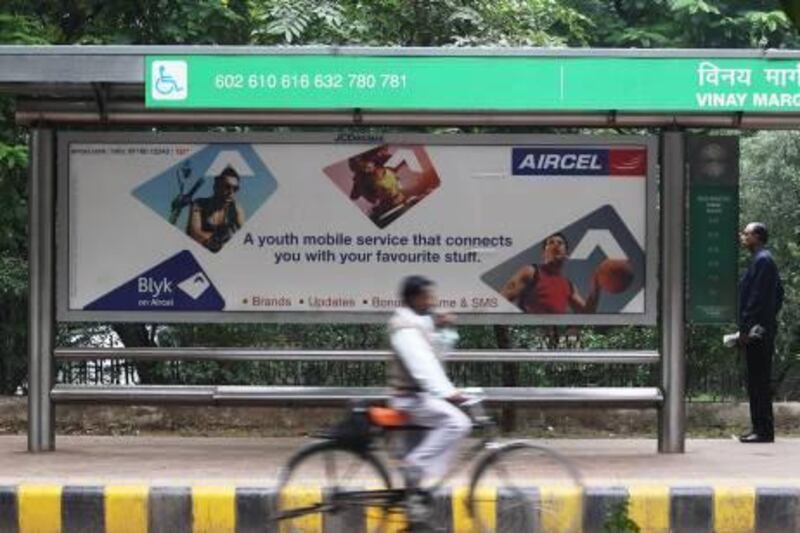Russia's Sistema and Malaysia's Maxis Group have shelved plans for a possible US$3 billion (Dh11.01bn) buyout of the Indian telecommunications operator Aircel, it was reported yesterday.
The move came after inconclusive negotiations on price and a failed government auction of airwaves, The Economic Times reported two people close to the deal as saying.
The Russian conglomerate, which offers services in India under the MTS brand, was in talks to acquire unlisted Aircel, majority owned by Malaysia's Maxis.
"But talks went cold shortly after the November auction failed," said one of the people.
Both Sistema and Aircel denied any negotiations on a takeover.
India needs more transparent rules to allow phone operators to merge, Vladimir Evtushenkov, whose Sistema is struggling to recover its wireless licences, said in December.
"The industry can't be successful with a dozen operators fighting for a market share, it's clear that consolidation is needed," the Russian billionaire said.
India's government needs more clarity in regulating the industry, including for mergers and acquisitions, he added.
India's supreme court cancelled 122 permits in February last year, prompting the prime minister Manmohan Singh's government to alter airwave policy, requiring operators to bid at auctions that collected less than a quarter of the planned US$7.3bn in November.
The original allocation in 2008 had been corrupted by "money power" and some buyers' "ability to manipulate the system", the high court said.
Sistema's Indian unit Sistema Shyam TeleServices stayed away from the November auction.
Sistema Shyam is 17 per cent owned by the Russian government.
The Indian unit is understood to be evaluating the possibilities of getting back its licences in the upcoming spectrum sale next month, the Times said.
It added Sistema was also awaiting the outcome of its review petition that it had filed in court over the cancellation of its permits.
The company has also challenged the supreme court revoking its mobile permits under the bilateral agreement between India and Russia.
One of the people also said the terms on which Maxis would keep its investments in Aircel proved to be a sticking point in the negotiations.
Aircel was held under multiple companies of the Maxis Group, which underwent a nine-month restructuring process last year in a bid to increase its appeal to potential suitors.
November's auction in the 800 MHz band was cancelled after both potential bidders withdrew citing high reserve prices.
Last month, the India cabinet halved the reserve price in a bid to salvage the sale of these airwaves. Sistema had welcomed the price reduction but said it expected a greater cut.
But the company will be required to pay only a fourth of the cost up front and the rest can be paid in 10 equal instalments after a two-year moratorium, the Times said.
"Our situation is special," Mr Evtushenkov said of Sistema's attempts to win back licences.
"In 2008, Sistema Shyam was the only operator seeking a pan-Indian CDMA spectrum. India's controller and auditor general never said CDMA frequencies were in such high demand as the GSM ones."
* with agencies





